Abstract
Herrnstein's equations are approximations of the multivariate rate equation at ordinary rates of reinforcement and responding. The rate equation is the result of a linear system analysis of variable-interval performance. Rate equation matching is more comprehensive than ordinary matching because it predicts and specifies the nature of concurrent bias, and predicts a tendency toward undermatching, which is sometimes observed in concurrent situations. The rate equation contradicts one feature of Herrnstein's hyperbola, viz., the theoretically required constancy of k. According to the rate equation, Herrnstein's k should vary directly with parameters of reinforcement such as amount or immediacy. Because of this prediction, the rate equation asserts that the conceptual framework of matching does not apply to single alternative responding. The issue of the constancy of k provides empirical grounds for distinguishing between Herrnstein's account and a linear system analysis of single alternative variable-interval responding.
Keywords: matching, quantitative law of effect, linear systems, mathematics, bias, under-matching, value, variable-interval schedules
Full text
PDF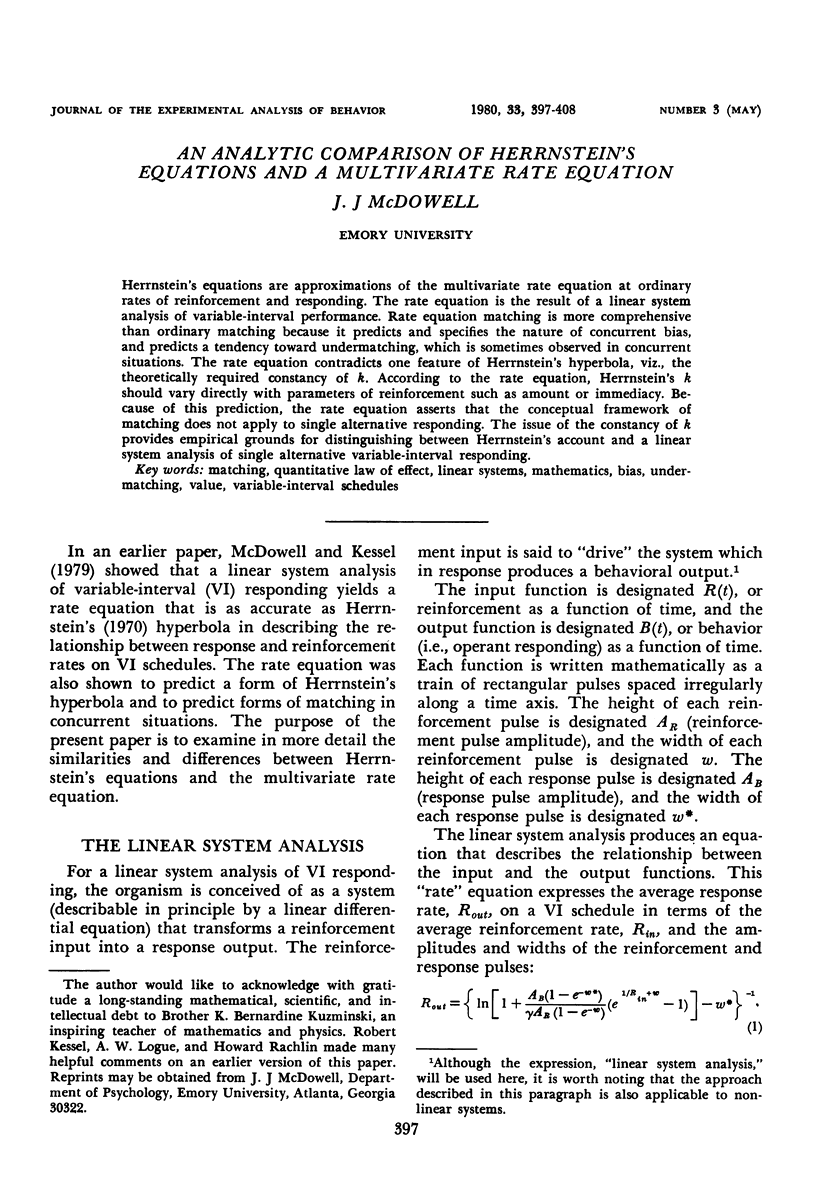
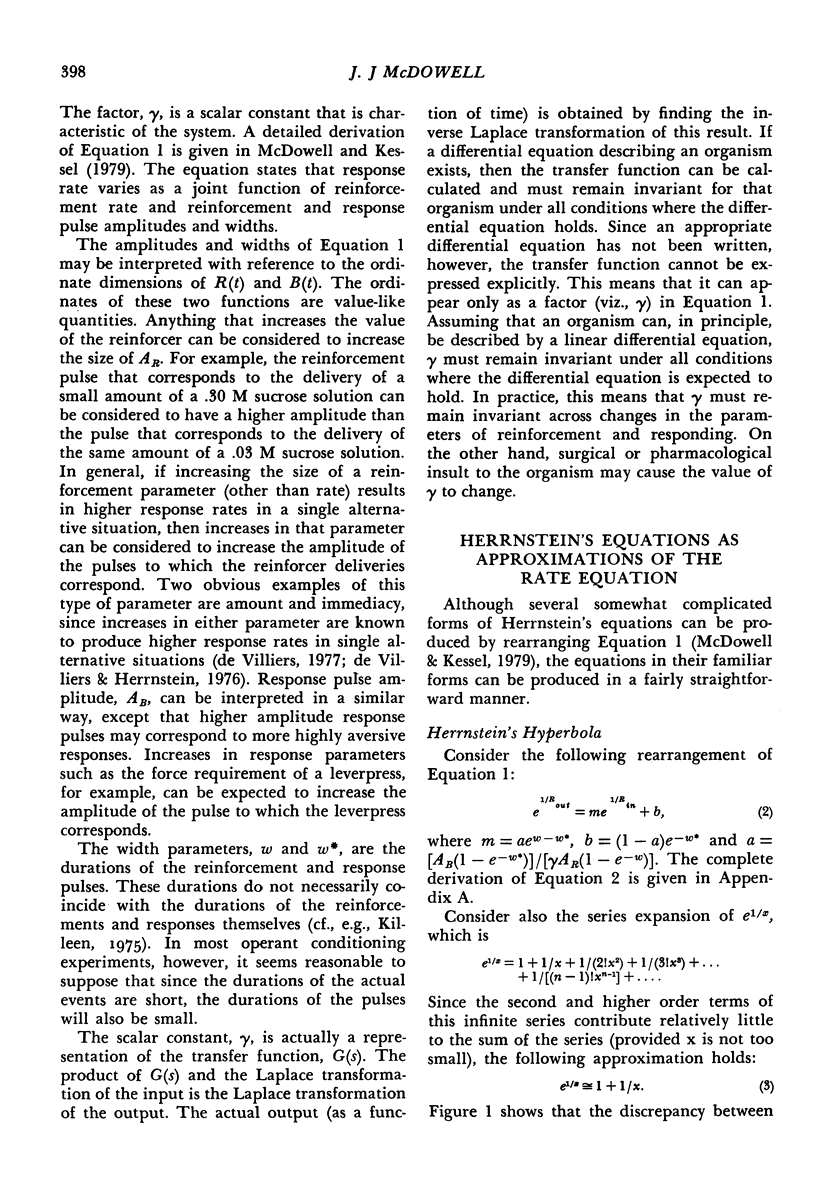
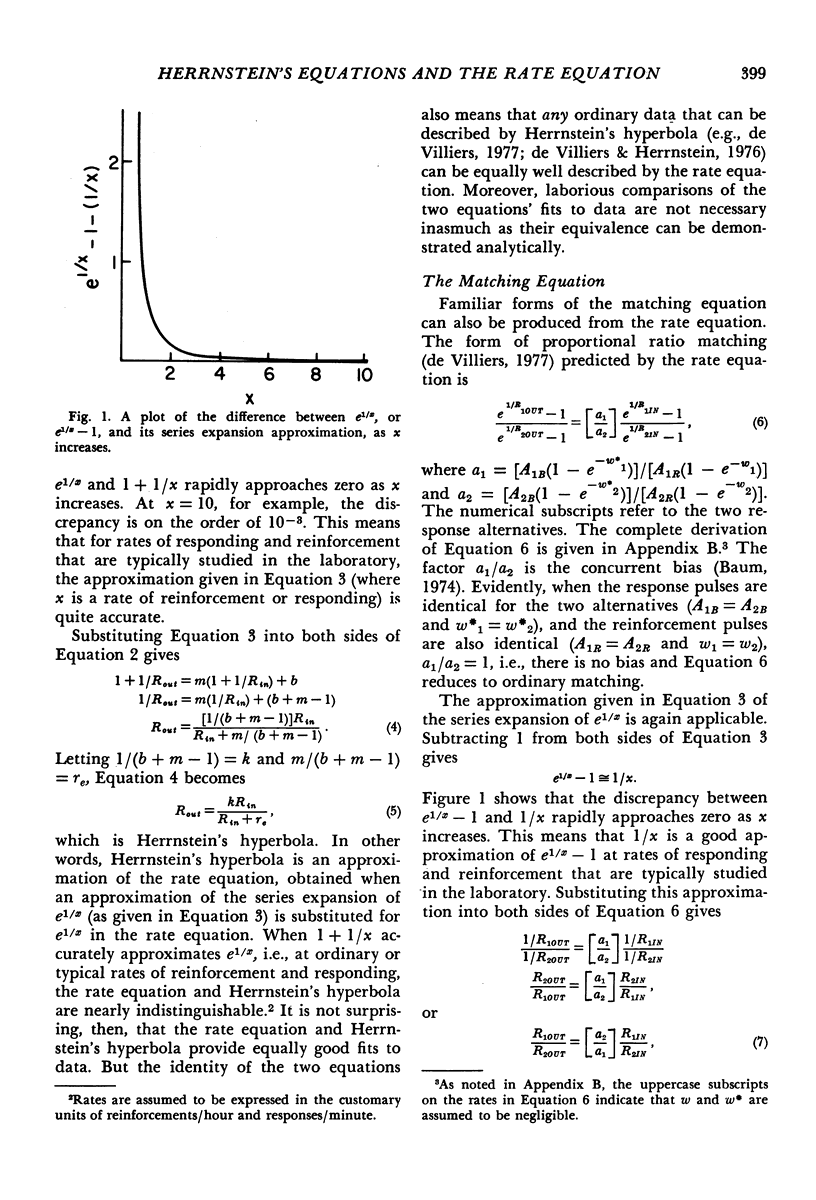
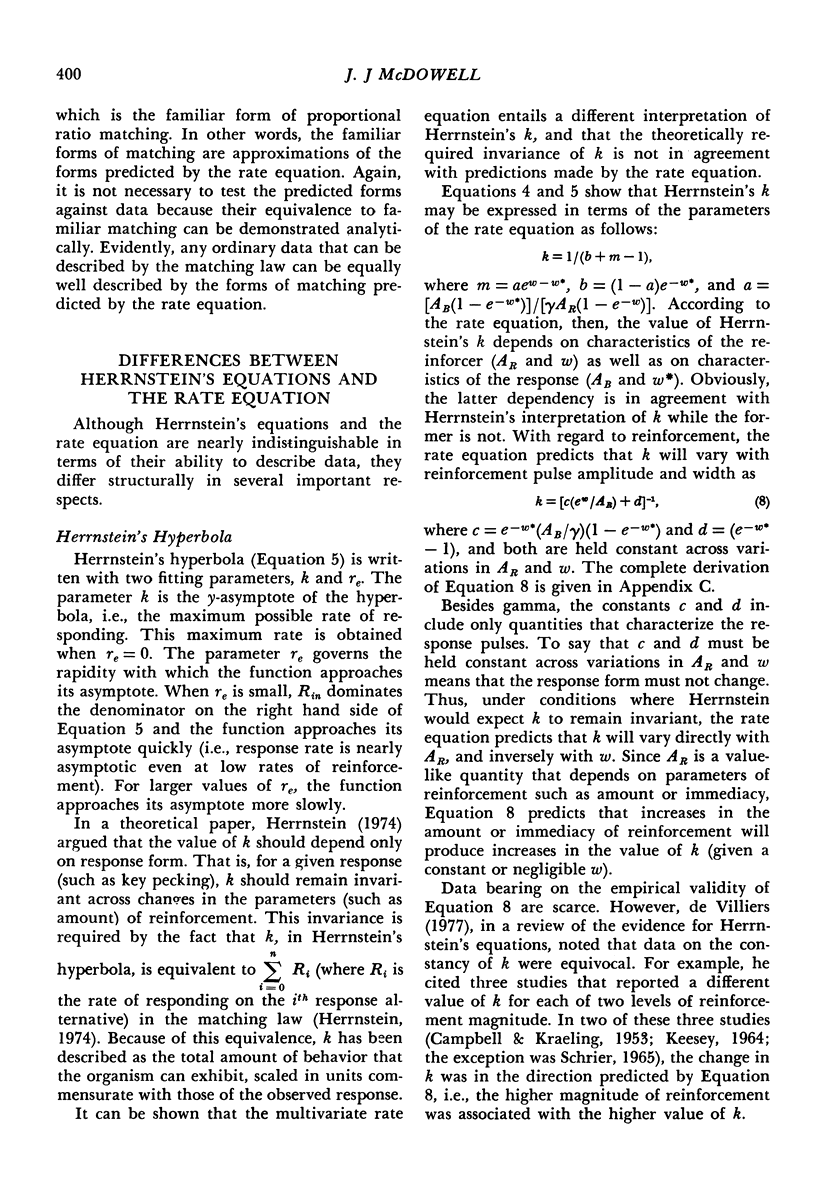
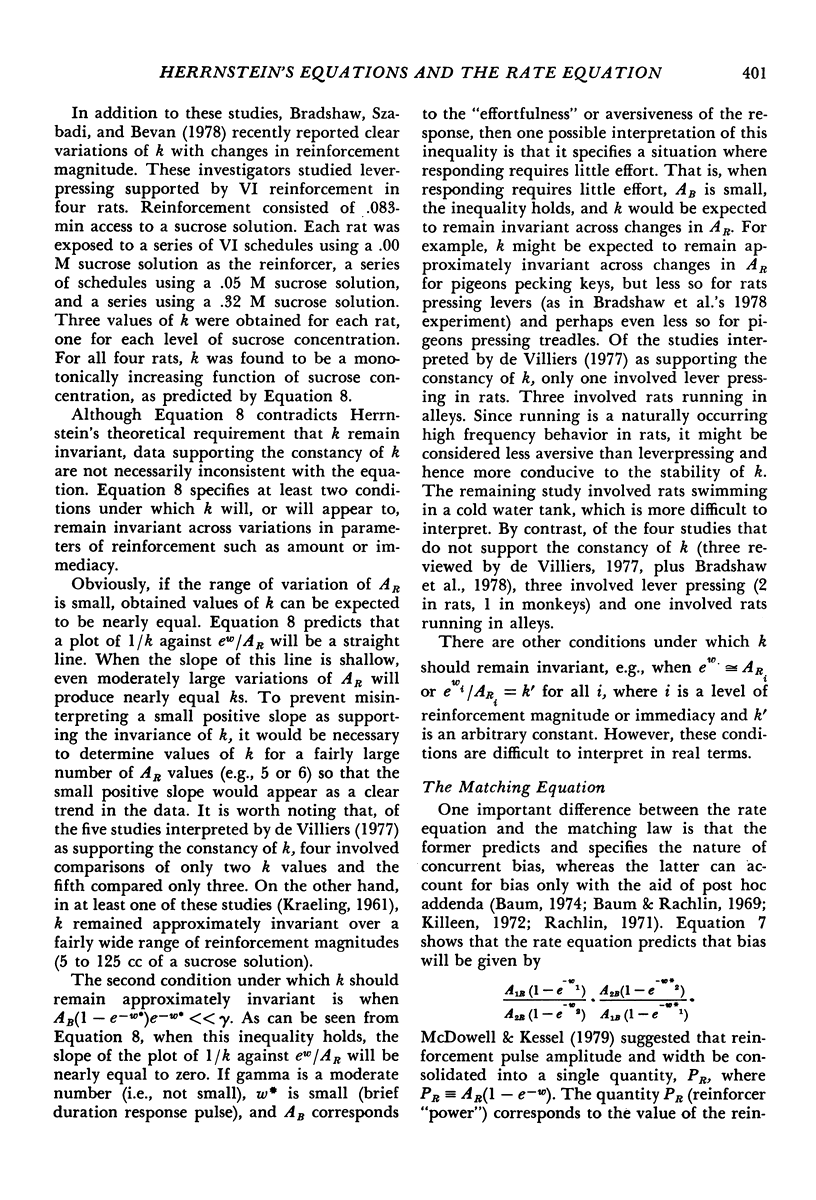
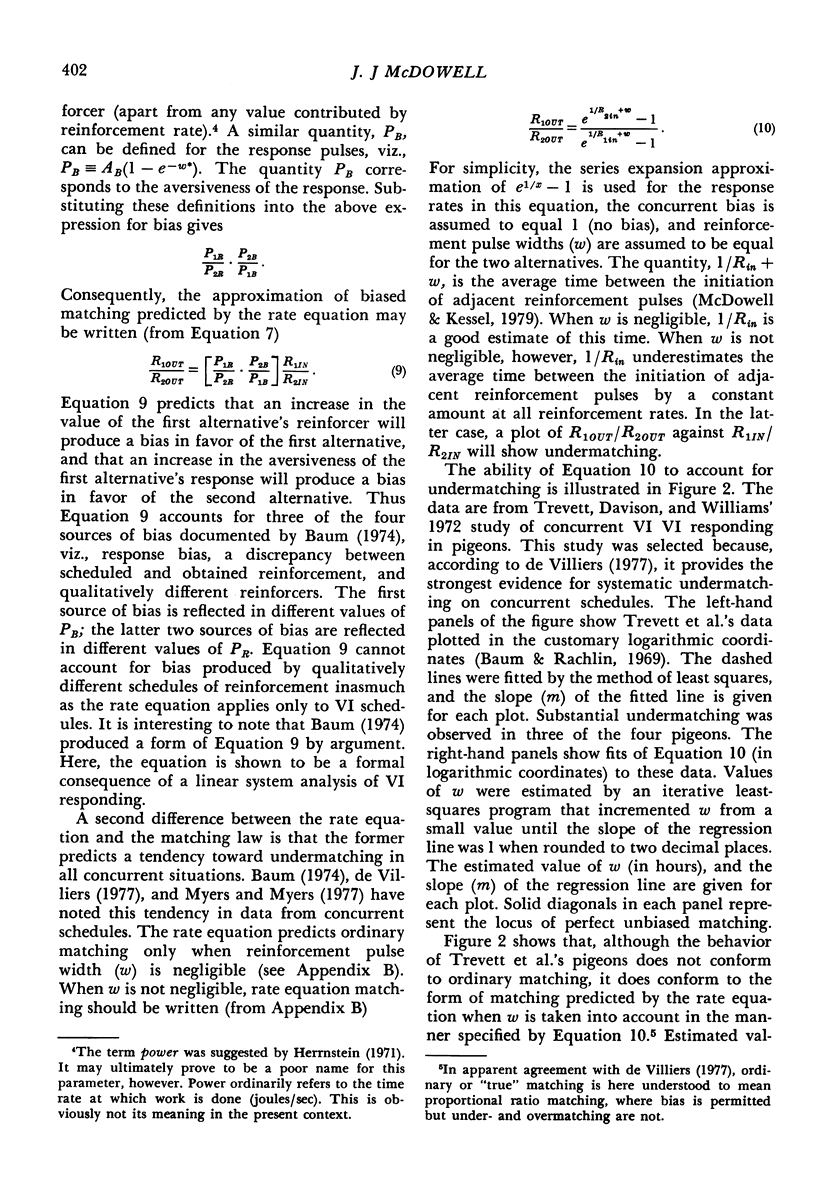
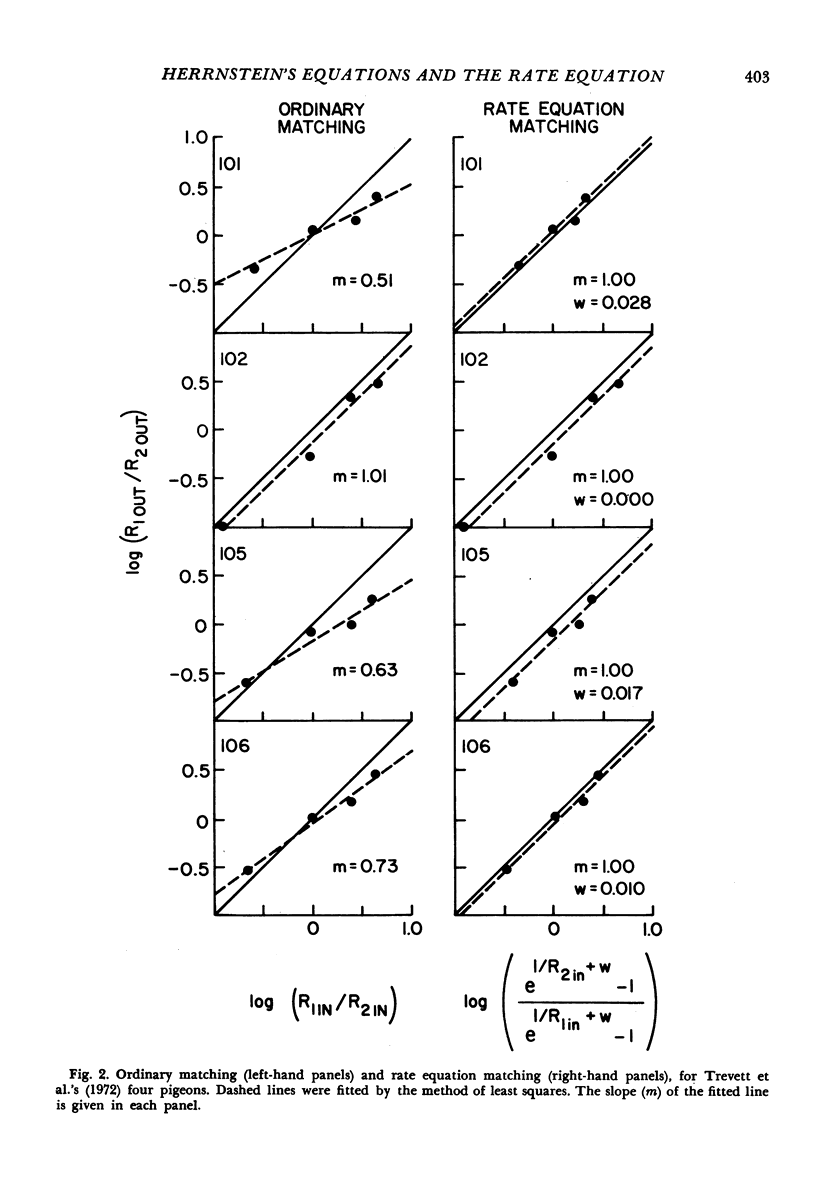
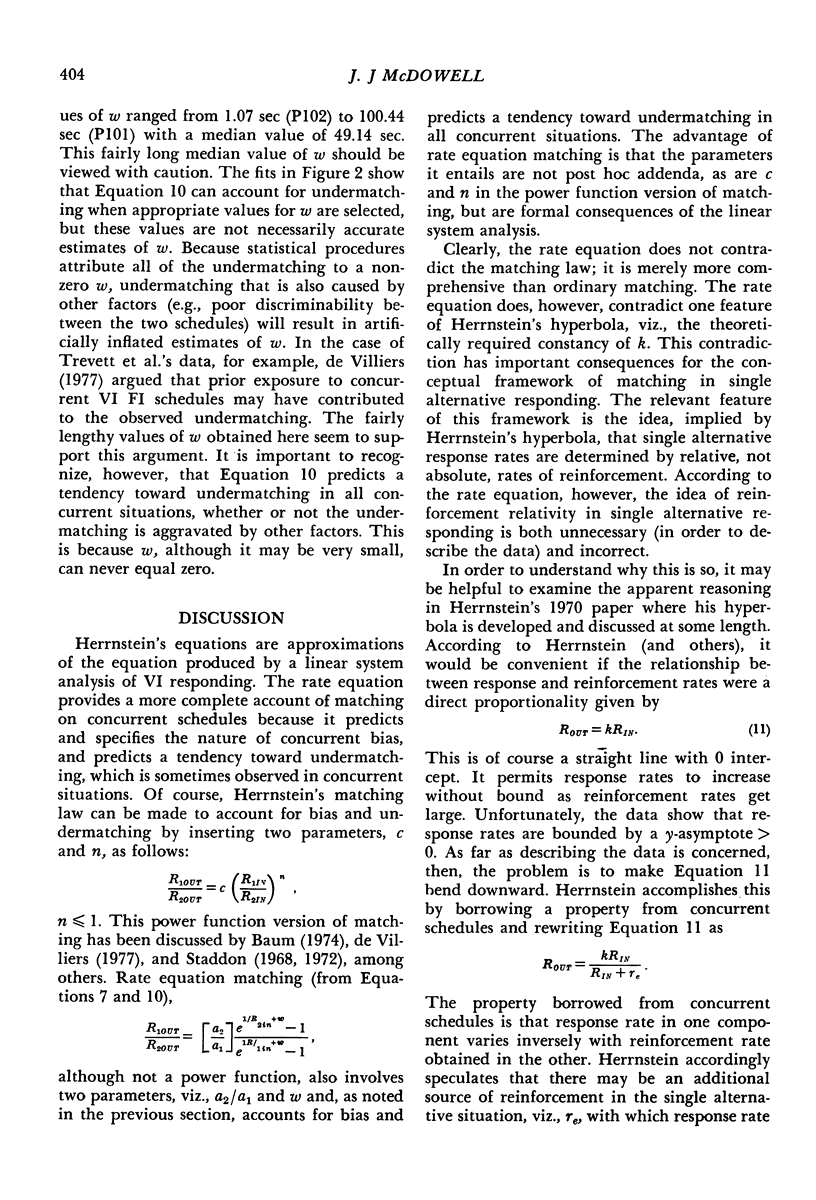
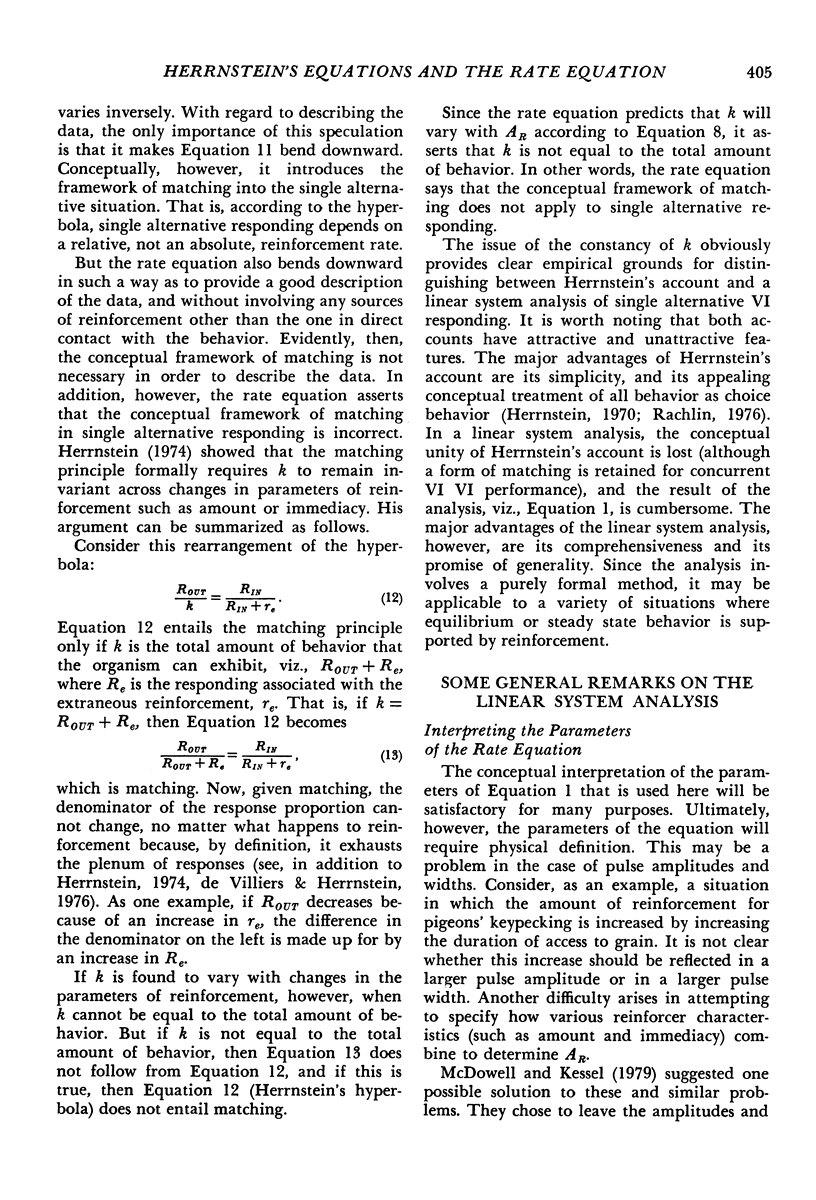
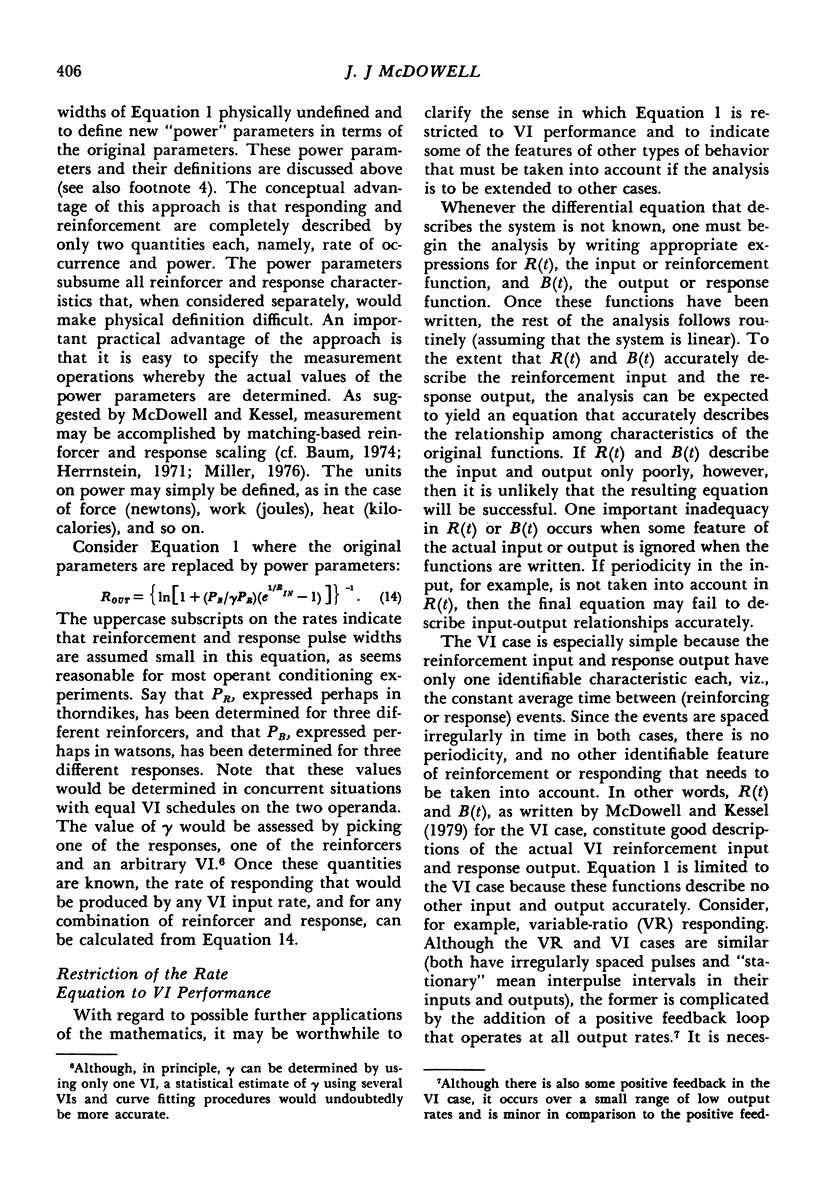
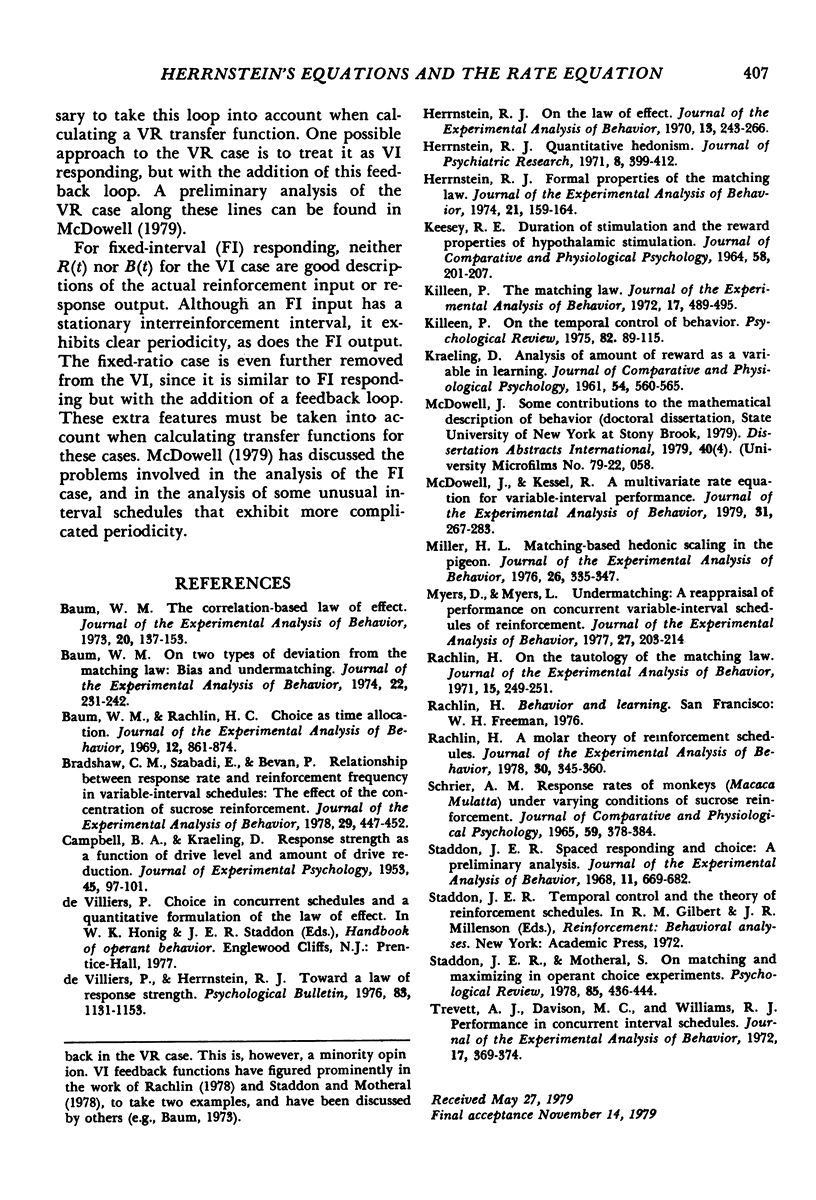
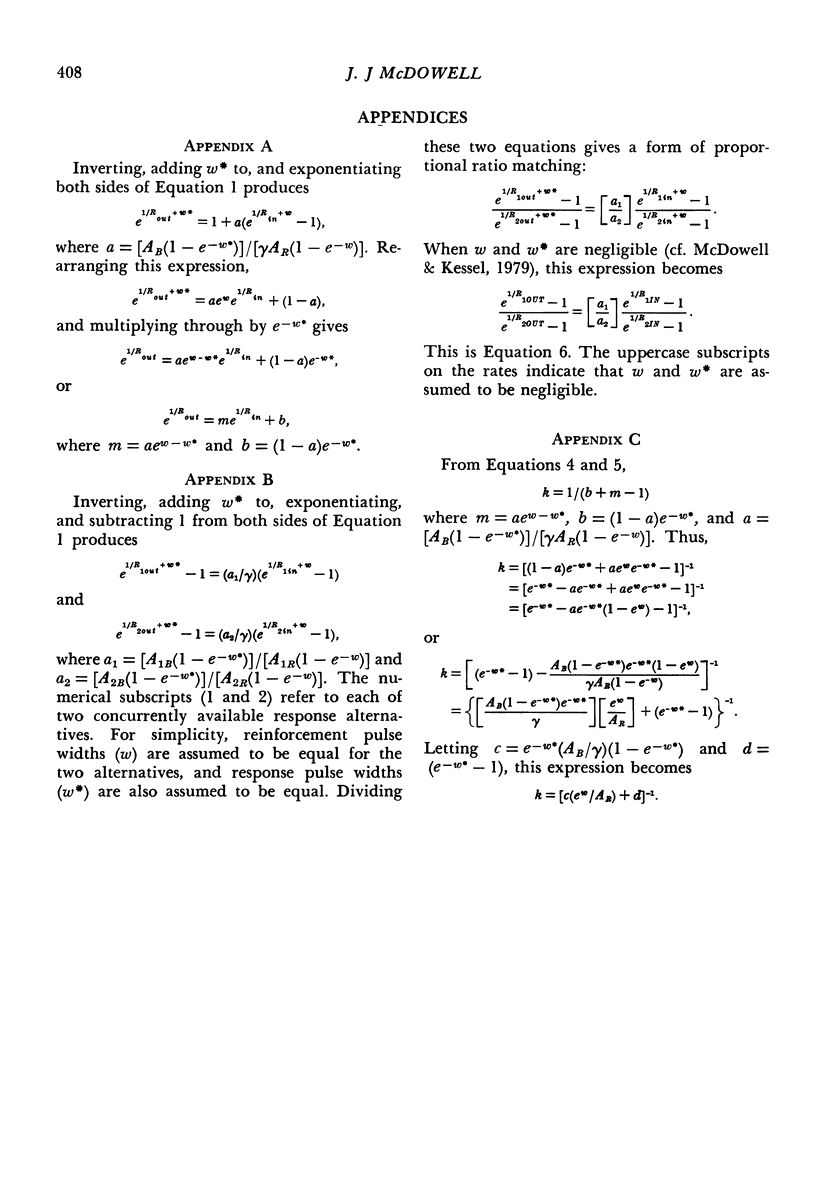
Selected References
These references are in PubMed. This may not be the complete list of references from this article.
- Baum W. M. On two types of deviation from the matching law: bias and undermatching. J Exp Anal Behav. 1974 Jul;22(1):231–242. doi: 10.1901/jeab.1974.22-231. [DOI] [PMC free article] [PubMed] [Google Scholar]
- Baum W. M., Rachlin H. C. Choice as time allocation. J Exp Anal Behav. 1969 Nov;12(6):861–874. doi: 10.1901/jeab.1969.12-861. [DOI] [PMC free article] [PubMed] [Google Scholar]
- Baum W. M. The correlation-based law of effect. J Exp Anal Behav. 1973 Jul;20(1):137–153. doi: 10.1901/jeab.1973.20-137. [DOI] [PMC free article] [PubMed] [Google Scholar]
- Bradshaw C. M., Szabadi E., Bevan P. Relationship between response rate and reinforcement frequency in variable-interval schedules: the effect of the concentration of sucrose reinforcement. J Exp Anal Behav. 1978 May;29(3):447–452. doi: 10.1901/jeab.1978.29-447. [DOI] [PMC free article] [PubMed] [Google Scholar]
- CAMPBELL B. A., KRAELING D. Response strength as a function of drive level and amount of drive reduction. J Exp Psychol. 1953 Feb;45(2):97–101. doi: 10.1037/h0060223. [DOI] [PubMed] [Google Scholar]
- Herrnstein R. J. Formal properties of the matching law. J Exp Anal Behav. 1974 Jan;21(1):159–164. doi: 10.1901/jeab.1974.21-159. [DOI] [PMC free article] [PubMed] [Google Scholar]
- Herrnstein R. J. On the law of effect. J Exp Anal Behav. 1970 Mar;13(2):243–266. doi: 10.1901/jeab.1970.13-243. [DOI] [PMC free article] [PubMed] [Google Scholar]
- Herrnstein R. J. Quantitative hedonism. J Psychiatr Res. 1971 Aug;8(3):399–412. doi: 10.1016/0022-3956(71)90033-1. [DOI] [PubMed] [Google Scholar]
- KEESEY R. E. DURATION OF STIMULATION AND THE REWARD PROPERTIES OF HYPOTHALAMIC STIMULATION. J Comp Physiol Psychol. 1964 Oct;58:201–207. doi: 10.1037/h0043134. [DOI] [PubMed] [Google Scholar]
- KRAELING D. Analysis of amount of reward as a variable in learning. J Comp Physiol Psychol. 1961 Oct;54:560–565. doi: 10.1037/h0040833. [DOI] [PubMed] [Google Scholar]
- Killeen P. The matching law. J Exp Anal Behav. 1972 May;17(3):489–495. doi: 10.1901/jeab.1972.17-489. [DOI] [PMC free article] [PubMed] [Google Scholar]
- McDowell J. J., Kessel R. A multivariate rate equation for variable-interval performance. J Exp Anal Behav. 1979 Mar;31(2):267–283. doi: 10.1901/jeab.1979.31-267. [DOI] [PMC free article] [PubMed] [Google Scholar]
- Miller H. L. Matching-based hedonic scaling in the pigeon. J Exp Anal Behav. 1976 Nov;26(3):335–347. doi: 10.1901/jeab.1976.26-335. [DOI] [PMC free article] [PubMed] [Google Scholar]
- Myers D. L., Myers L. E. Undermatching: a reappraisal of performance on concurrent variable-interval schedules of reinforcement. J Exp Anal Behav. 1977 Jan;27(1):203–214. doi: 10.1901/jeab.1977.27-203. [DOI] [PMC free article] [PubMed] [Google Scholar]
- Rachlin H. A molar theory of reinforcement schedules. J Exp Anal Behav. 1978 Nov;30(3):345–360. doi: 10.1901/jeab.1978.30-345. [DOI] [PMC free article] [PubMed] [Google Scholar]
- Rachlin H. On the tautology of the matching law. J Exp Anal Behav. 1971 Mar;15(2):249–251. doi: 10.1901/jeab.1971.15-249. [DOI] [PMC free article] [PubMed] [Google Scholar]
- SCHRIER A. M. RESPONSE RATES OF MONKEYS (MACACA MULATTA) UNDER VARYING CONDITIONS OF SUCROSE REINFORCEMENT. J Comp Physiol Psychol. 1965 Jun;59:378–384. doi: 10.1037/h0022064. [DOI] [PubMed] [Google Scholar]
- Staddon J. E. Spaced responding and choice: a preliminary analysis. J Exp Anal Behav. 1968 Nov;11(6):669–682. doi: 10.1901/jeab.1968.11-669. [DOI] [PMC free article] [PubMed] [Google Scholar]
- Trevett A. J., Davison M. C., Williams R. J. Performance in concurrent interval schedules. J Exp Anal Behav. 1972 May;17(3):369–374. doi: 10.1901/jeab.1972.17-369. [DOI] [PMC free article] [PubMed] [Google Scholar]


